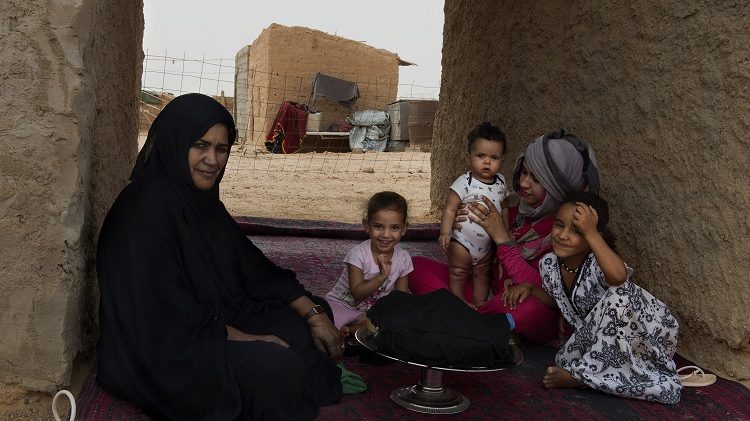Eduardo González
The Spanish Agency for International Development Cooperation (AECID), twelve Autonomous Communities and the Spanish Federation of Municipalities and Provinces (FEMP) will contribute 1.8 million euros in 2024 to address the situation of the Sahrawi refugee camps in Tindouf (Algeria) and those displaced by violence in Niger, Palestine and Sudan and the migration crisis in Darien (Central America).
As announced by the AECID on the occasion of the celebration of World Refugee Day, which took place this past Thursday, the collaboration between the Agency, the communities of Galicia, Andalusia, Asturias, Cantabria, Canary Islands, Extremadura, Balearic Islands, Murcia, Community Valenciana, Castilla-La Mancha, Madrid and Castilla y León and the FEMP will be developed within the framework of the agreement between decentralized cooperation and the AECID for humanitarian action.
According to the latest Report from the United Nations High Commissioner for Refugees (UNHCR), in 2024 “a record number of 120 million people have had to leave their homes involuntarily. 40% of these people are boys and girls.”
With the aim of providing support to the refugee and internally displaced population, as well as the host communities, AECID, Regions and FEMP will provide a total of 1.8 million euros corresponding to the 2024 financial year to support the humanitarian response in Sudan and the neighboring countries, the Saharawi refugee population camps in Tindouf, Palestine, Niger and Darien, at a rate of almost half a million euros for each of these areas.
In Sudan, the armed conflict has displaced millions of people since April 2023. Currently, it is the largest internal displacement crisis in the world, so support will continue to UNHCR, prioritizing health, education and livelihoods for people refugees and the communities that host them in South Sudan and Chad.
In Niger, the feminist cooperation that guides Spanish humanitarian action channels aid through the United Nations Population Fund (UNFPA), with the aim of supporting displaced women, adolescents and girls, returnees and host communities. , affected by the security crisis in the Tillaberi region, focusing on sexual and reproductive health and protection against sexual violence.
The Sahrawi population, who has taken refuge for more than four decades in the five camps in the Algerian desert of Tindouf, depends almost entirely on international humanitarian aid, in which Spain is the main donor. In a traditional line of continuity, decentralized cooperation and AECID renew their joint support to the World Food Program (WFP), focused on addressing food insecurity and malnutrition, exacerbated by inflation and the high costs of international transportation.
In Palestine, the worsening of the conflict is having profound repercussions on the mental health of children and adolescents, which is why decentralized cooperation and AECID will support UNICEF to provide child protection services and psychosocial support in Gaza and the West Bank.
On the American continent, Darién, a dangerous transit zone on the border between Panama and Colombia, Spanish Cooperation has joined forces with the Panamanian Red Cross, in a clear commitment to localizing aid, reinforcing health services, water, sanitation, hygiene and protection for people in transit, especially women, girls and boys.
The current agreement between decentralized cooperation and the AECID for joint and coordinated action in humanitarian action has been in force since November 2023, with a validity of four years. The origin of this AECID initiative dates back to 2015. Since then, it has maintained the purpose of coordinating public management in Spanish humanitarian action, pooling financial, human and technical resources in order to improve the impact and quality of Spanish humanitarian action.
To date, thanks to this instrument, the AECID and the CCAA have allocated more than 15 million euros to populations in situations of prolonged humanitarian crises, as well as in cases of sudden emergencies.







